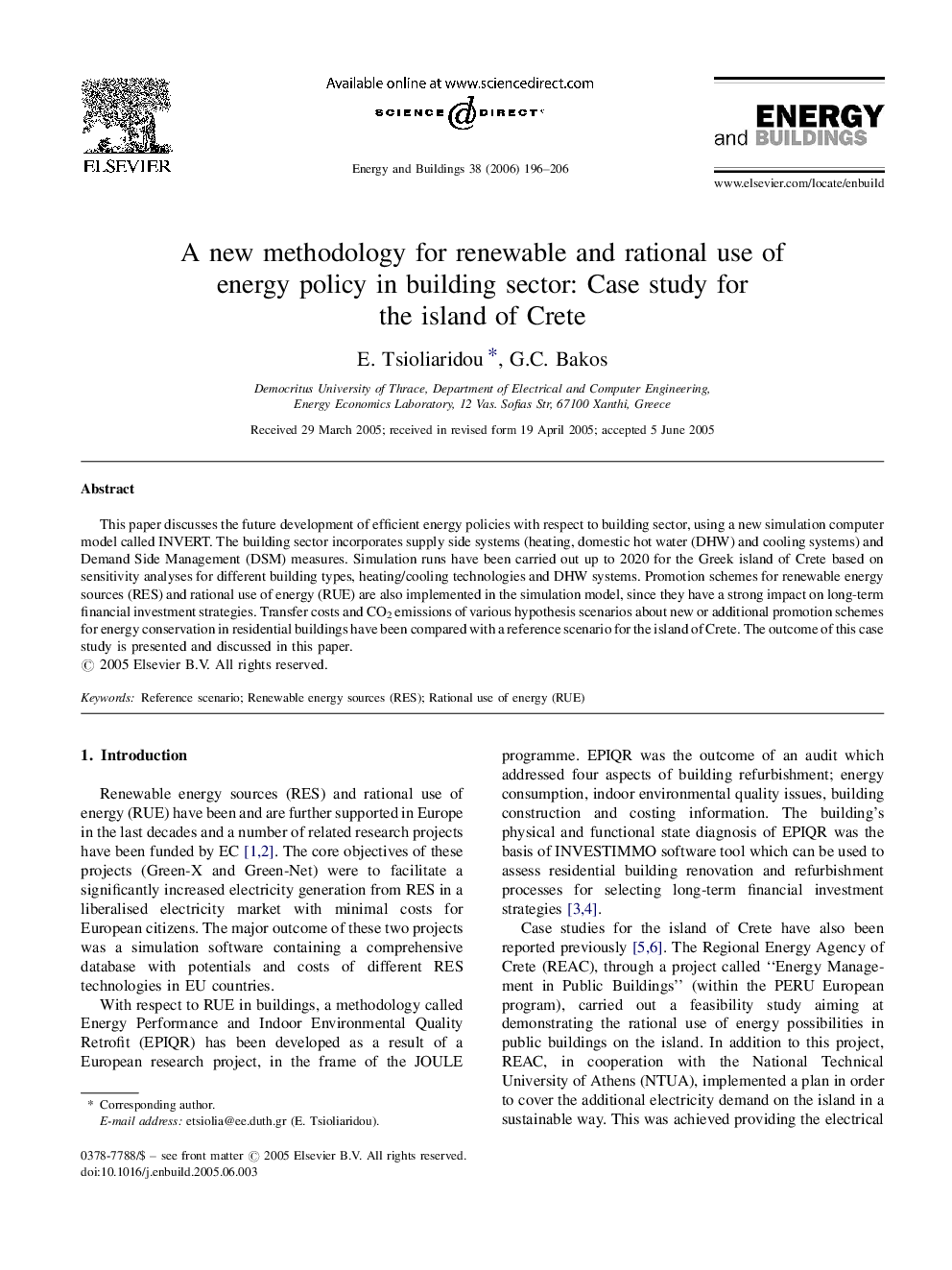| Article ID | Journal | Published Year | Pages | File Type |
|---|---|---|---|---|
| 265568 | Energy and Buildings | 2006 | 11 Pages |
This paper discusses the future development of efficient energy policies with respect to building sector, using a new simulation computer model called INVERT. The building sector incorporates supply side systems (heating, domestic hot water (DHW) and cooling systems) and Demand Side Management (DSM) measures. Simulation runs have been carried out up to 2020 for the Greek island of Crete based on sensitivity analyses for different building types, heating/cooling technologies and DHW systems. Promotion schemes for renewable energy sources (RES) and rational use of energy (RUE) are also implemented in the simulation model, since they have a strong impact on long-term financial investment strategies. Transfer costs and CO2 emissions of various hypothesis scenarios about new or additional promotion schemes for energy conservation in residential buildings have been compared with a reference scenario for the island of Crete. The outcome of this case study is presented and discussed in this paper.
